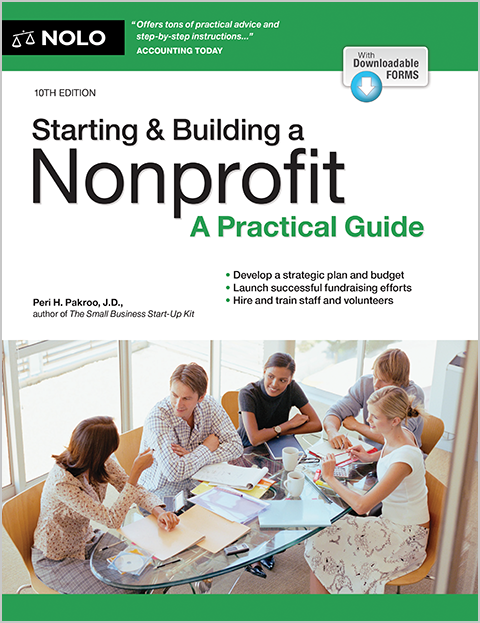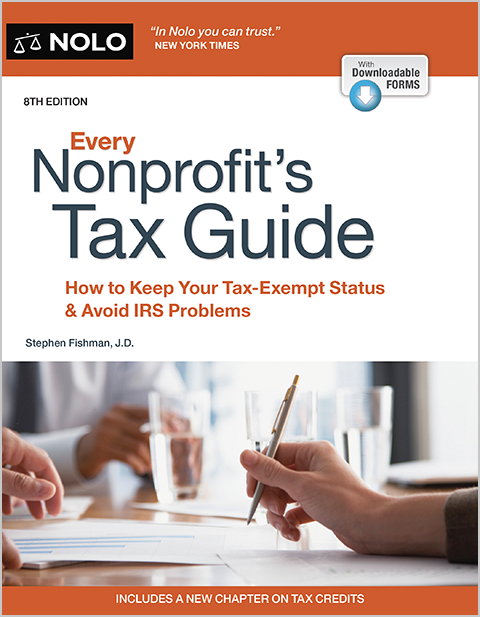Learn how to form a tax-exempt 501(c)(3) nonprofit corporation in any state.
Forming a nonprofit corporation is much like creating a regular corporation, except that nonprofits have to take the extra steps of applying for tax-exempt status with the IRS and their state tax division. Here is what you need to do:
- Choose an available business name that meets the requirements of state law.
- File formal paperwork, usually called articles of incorporation, and pay a small filing fee (typically under $125).
- Apply for your federal and state tax exemptions.
- Create corporate bylaws, which set out the operating rules for your nonprofit corporation.
- Appoint the initial directors. (In some states you must choose your initial directors before you file your articles, because you must list their names in the document.)
- Hold the first meeting of the board of directors.
- Obtain licenses and permits that may be required for your corporation.
Choose a Business Name
Before you form your nonprofit corporation, you need to decide on a name that complies with the rules of your state's corporate filing office. Check your state's filing office website for your state's rules, but the following guidelines commonly apply:
- The name of your nonprofit cannot be the same as the name of another corporation on file with the corporations division.
- The name must end with a corporate designator, such as Corporation, Incorporated, Limited, or Corp., Inc., or Ltd. (This is required in only about half of the states.)
- The name cannot contain certain words prohibited by the state, such as Bank, Cooperative, Federal, National, United States, or Reserve.
In many states, you can check corporate name availability online by going to the state's filing office website. Or you can call your state's corporations division and ask whether your proposed name is available for your use. Often, for a small fee, you can reserve the name for a short period of time until you file your articles of incorporation.
In addition to confirming that another corporation in your state isn't already using your proposed name, you must make sure your name won't violate a trademark owned by another company (in your state or out of state). To do this, you'll need to conduct a trademark search. For information about trademark law and name conflicts, see the Your Business Name area of Nolo's website.
Select your state to learn about your state's nonprofit corporation laws.
Alabama
Alaska
Arizona
Arkansas
California
Colorado
Connecticut
Delaware
D.C.
Florida
Georgia
Hawaii
Idaho
Illinois
Indiana
Iowa
Kansas
Kentucky
Louisiana
Maine
Maryland
Massachusetts
Michigan
Minnesota
Mississippi
Missouri
Montana
Nebraska
Nevada
New Hampshire
New Jersey
New Mexico
New York
North Carolina
North Dakota
Ohio
Oklahoma
Oregon
Pennsylvania
Rhode Island
South Carolina
South Dakota
Tennessee
Texas
Utah
Vermont
Virginia
Washington
West Virginia
Wisconsin
Wyoming
Ready to start your Nonprofit Corporation?



